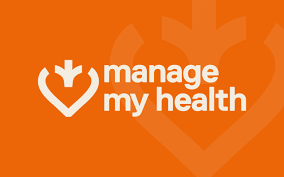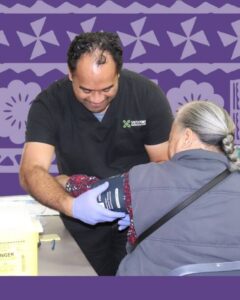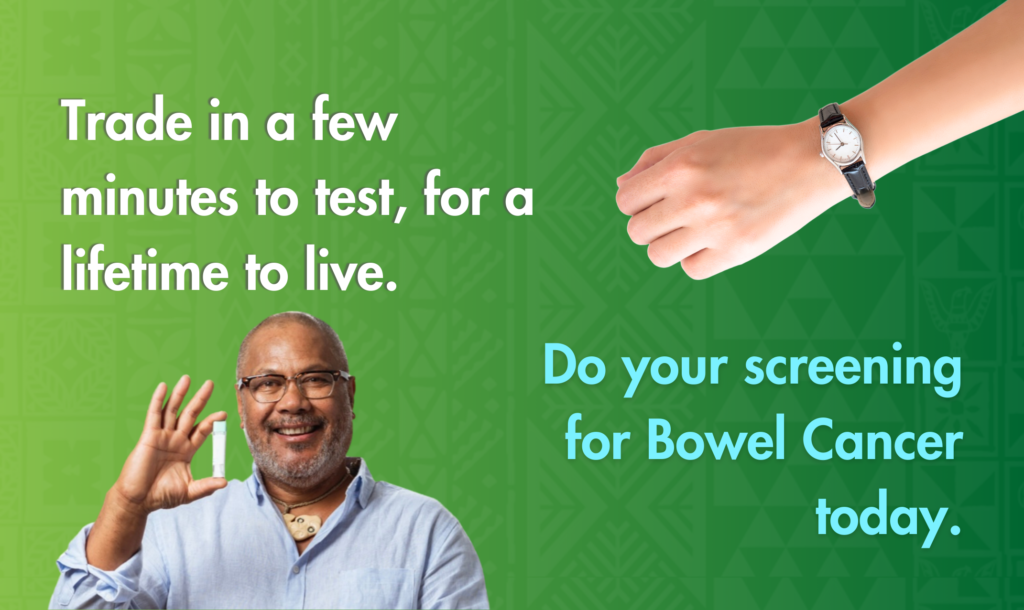
Introduction to bowel cancer
Bowel cancer, also known as colorectal cancer, is a significant health concern in our country. New Zealand has one of the highest rates of bowel cancer in the world, with over 3000 kiwis diagnosed every year. Tragically, it claims the lives of about 1200 individuals each year, making it the second most common cause of cancer-related deaths, just behind lung cancer.
Recently, research has shown an alarming rise in bowel cancer rates amongst younger age groups – notably in Māori.
Symptoms
Common symptoms include changes in bowel habits, blood in the stool, abdominal pain, unexplained weight loss, and fatigue.
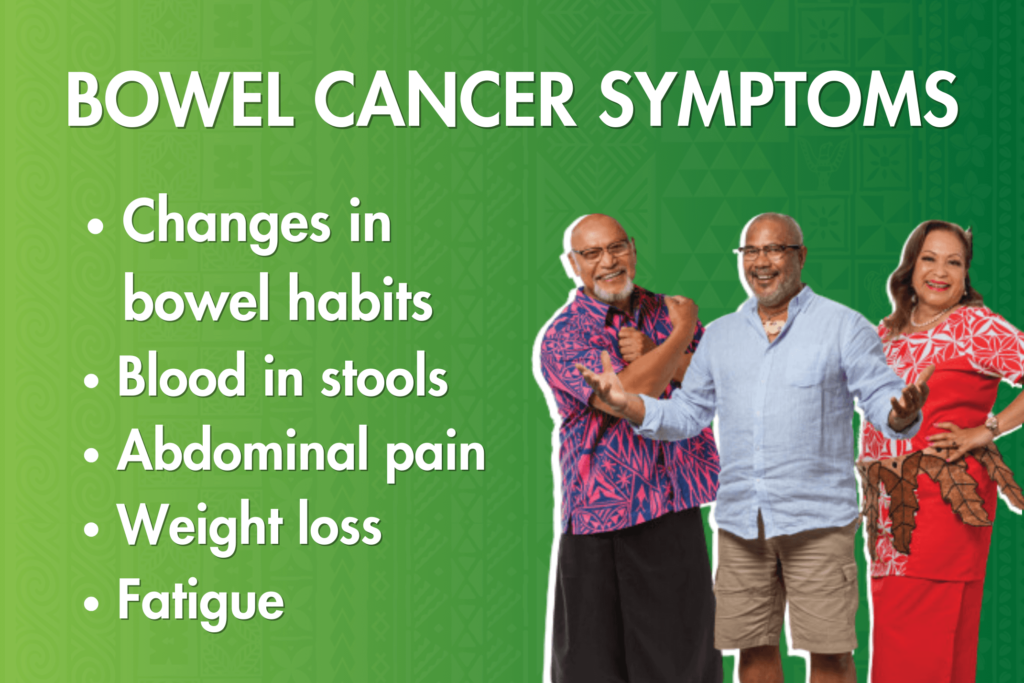
Facts
- It is the second most commonly diagnosed cancer in New Zealand, and the second leading cause of cancer death in the country.
- The risk of developing it increases with age, with the majority of cases diagnosed in individuals aged 50 and older.
- Māori and Pasifika populations have higher incidence rates of bowel cancer and are more likely to be diagnosed at advanced stages.
Māori and Pasifika
When compared to other ethnic groups, a higher amount of bowel cancer occurs in Māori and Pasifika people before they reach the age of 60 years old. This is why the eligibility for free testing was lowered to age 50 for Māori and Pasifika (it is 60 – 74 years for other ethnic groups).
Māori and Pasifika people are more likely to develop the disease earlier in life but are often diagnosed at a later stage, due to low screening rates.
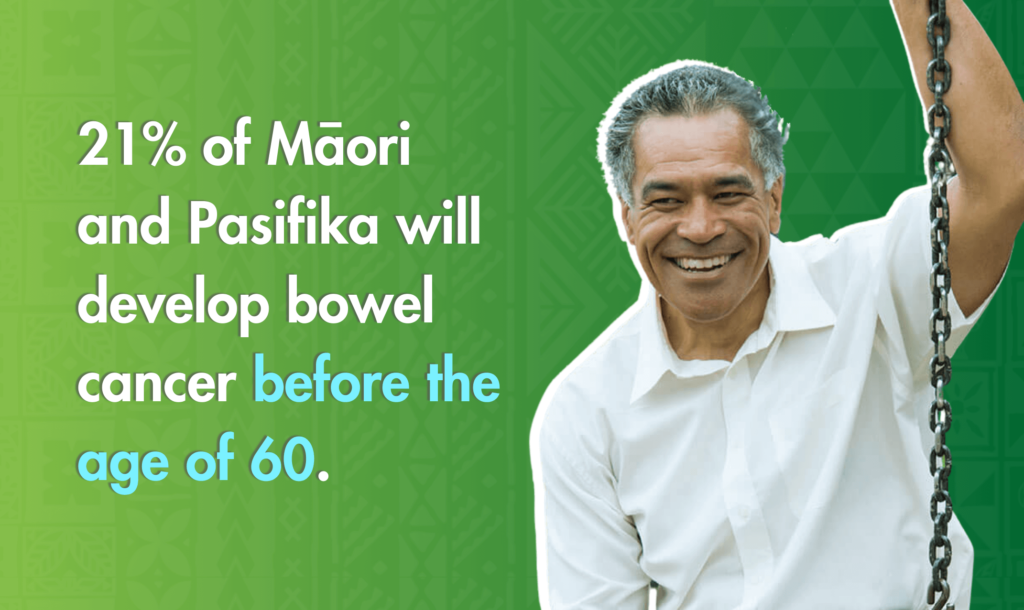
Screening for Bowel Cancer
A bowel screening test is for people who do not have any obvious symptoms of the disease. Don’t wait until you have symptoms to get screened, as bowel cancer can develop without any early warning signs. By the time symptoms present, it can often be too late with the cancer having already spread within the body.
That is why early screening is encouraged for absolutely everyone, as a preventative approach. When caught and treated early, there is a 90 percent survival rate. Testing is super easy and can be done at home with a screening kit, that involves taking a sample of your bowel motions and sending it off to the lab.
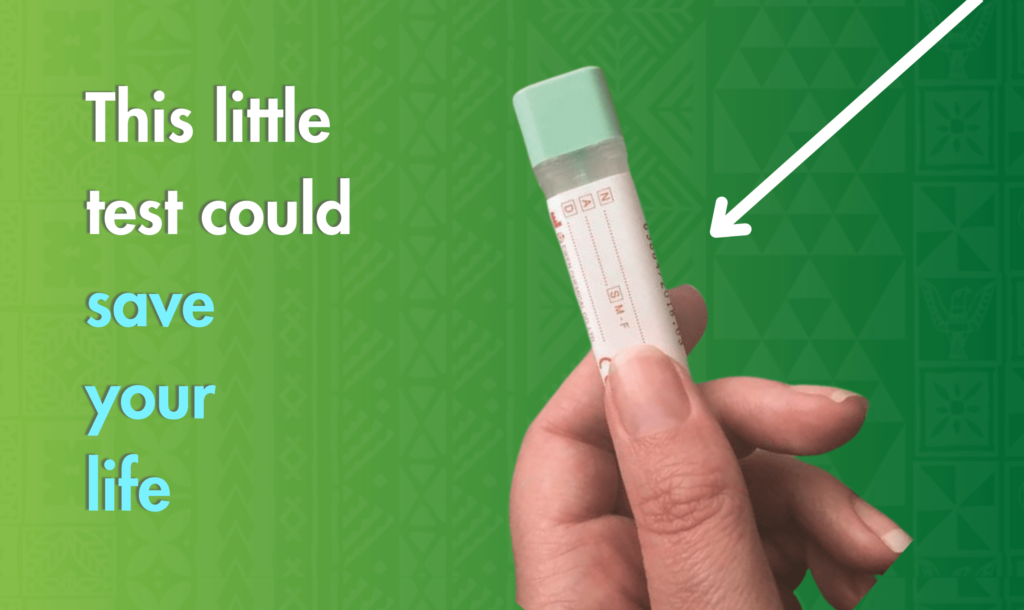
Screening Test
The main way to test for bowel cancer is with the Fecal Immunochemical Test (FIT). This is an easy test you do at home. It looks for tiny amounts of blood in your stool, which can be an early sign of bowel cancer.
How it Works
- People who are eligible will get a letter and a FIT kit in the mail.
- The kit has instructions on how to collect a small stool sample.
- You send the sample to a lab using the pre-paid envelope that comes with the kit.
Results
- If the FIT test is negative, you’ll be asked to do the test again in two years.
- If the FIT test is positive, your healthcare provider will contact you to talk about the results and set up a colonoscopy for further examination.
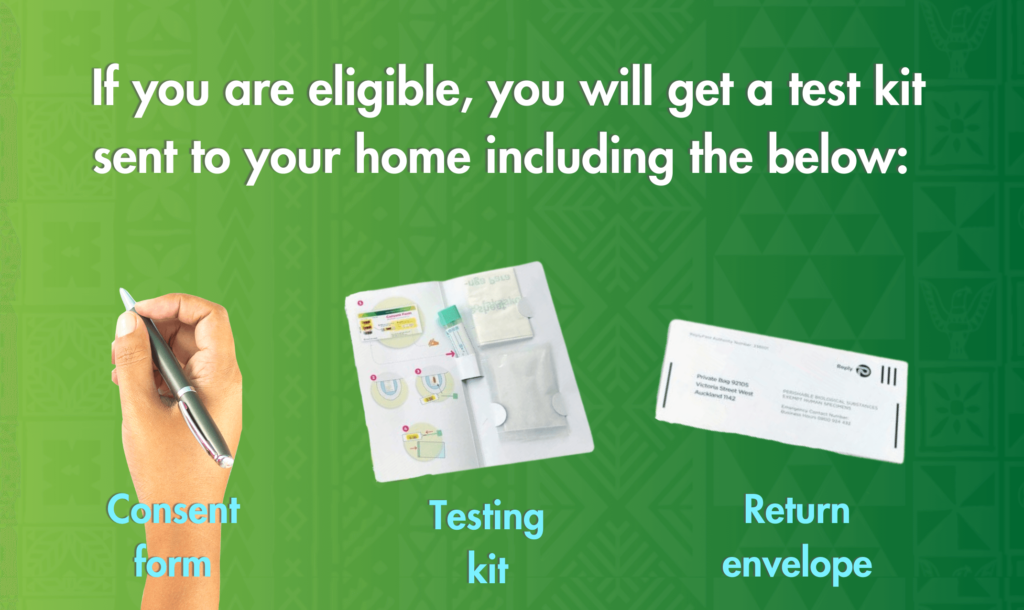
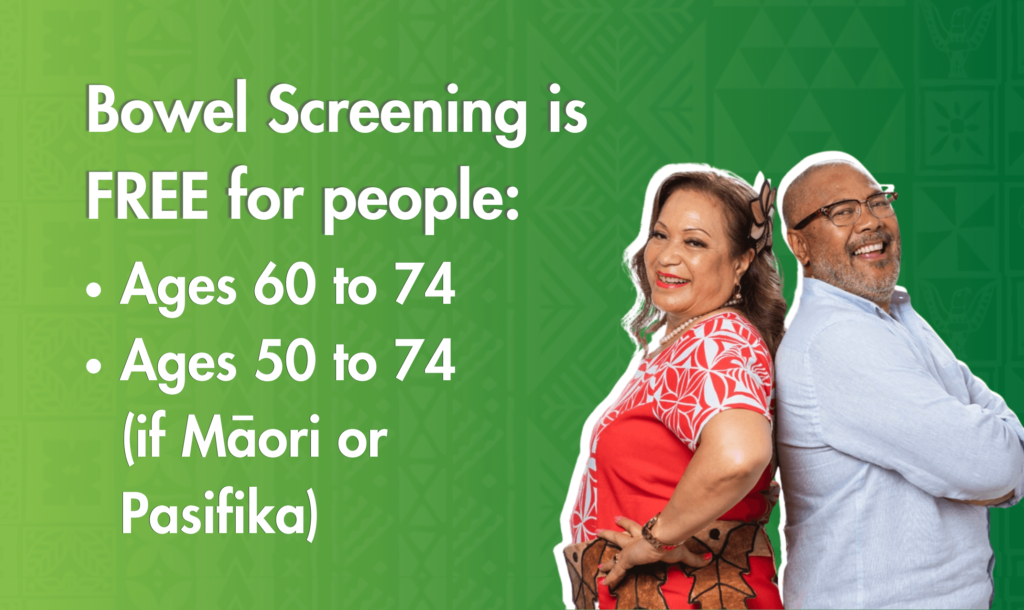
More than 835,000 New Zealanders qualify for screening, yet only around half are participating in this free, at-home test. Participation rates are especially low among Pasifika and Māori communities, prompting the reduction of the free screening eligibility age to 50 years old.
In some parts of New Zealand, free bowel screening is available to Māori and Pacific people from the age of 50 to 74. In other parts of the country, the age for free bowel screening is 60 to 74 for everyone.
For more information about screening, visit https://www.timetoscreen.nz/bowel-screening/about-the-national-bowel-screening-programme/
Alternatively, you can contact us to find out more about how we can help with your screening. Visit https://southpointfamilydoctors.co.nz/contact-us/ and use our contact form, or give us a call during business hours.
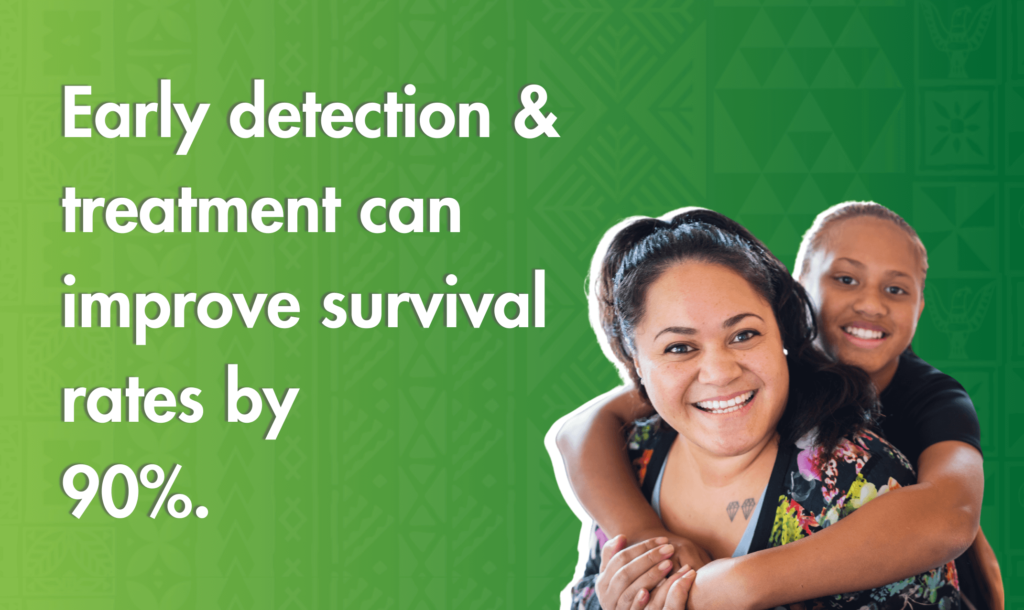
Other preventative measures
Adopting a healthy lifestyle can significantly reduce the risk of developing this disease. You can make small changes in your everyday life to maintain a healthy weight, engage in regular physical activity, avoid smoking, and reduce alcohol consumption – all of these will make a significant change in your life and help reduce the risk.
Following a balanced diet rich in fruit, vegetables, whole grains, and lean proteins can help lower your risk. Limiting the intake of red and processed meats is also recommended.
By understanding the facts about bowel cancer, adopting healthy lifestyle habits, and participating in screening programs, we can work together to lower the burden of this disease and save lives.
Helpful links
Time to screen: About bowel cancer
Otago University: Early onset bowel cancer on the rise
NZMA Journal Article: Bowel Screening Age Range extension for Māori: what is all the fuss about?
NZ Herald Article: Māori and Pasifika encouraged to test for bowel cancer
1 News: Early onset of bowel cancer rising – particularly among Māori
